Keep Your Mouth Shut, And Don’t Volunteer Information!
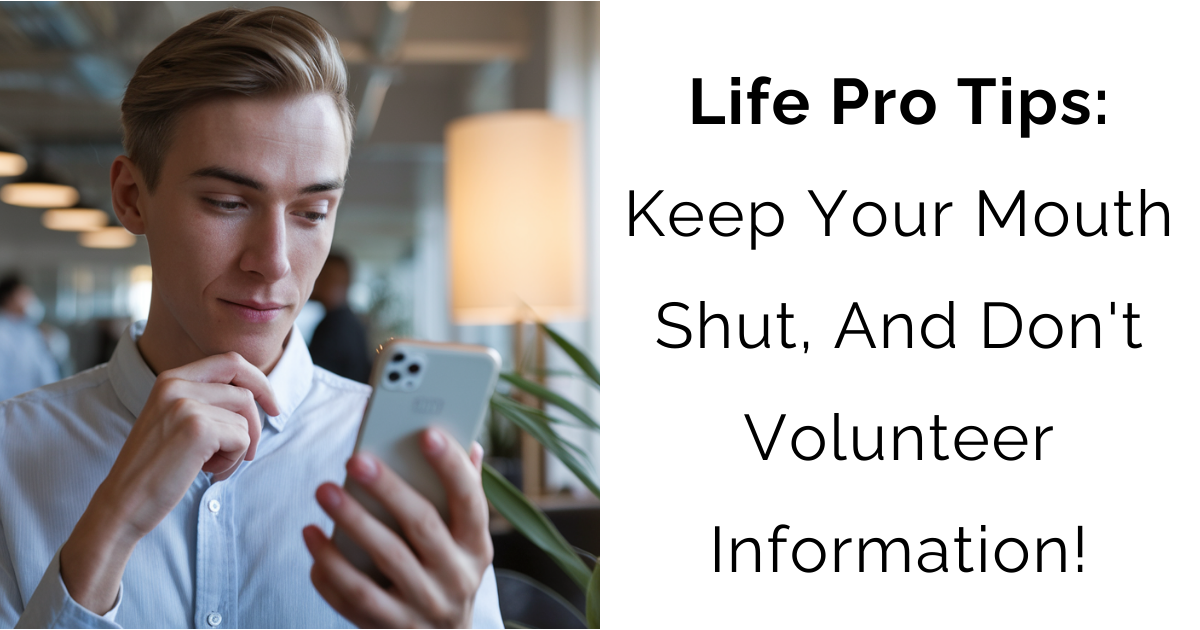
In the hectic rush of modern life, a missed phone interview can feel like a catastrophe. Yet sometimes, simplicity is the key to turning a potential disaster into a stroke of genius. Imagine waking up late, realizing you’ve missed a crucial call, and instead of launching into a flurry of excuses, you simply apologize and ask to reschedule. This unpretentious response not only saves face but also shifts the burden of explanation back onto the other party. It’s a reminder that sometimes less is more—a lesson that resonates with anyone who’s ever been in a high-stakes situation.
In our fast-paced world, the art of saying just enough has become a superpower. The idea is simple: volunteer no extra information unless asked. This tactic not only protects you from unintended consequences but also keeps conversations crisp and to the point, making it easier for both sides to move forward without getting bogged down in unnecessary details.

Before we delve into expert insights and community opinions, take a moment to check out the original Reddit post below that sparked this conversation about the power of saying just enough.
‘LPT: Keep Your Mouth Shut, And Don’t Volunteer Information?’
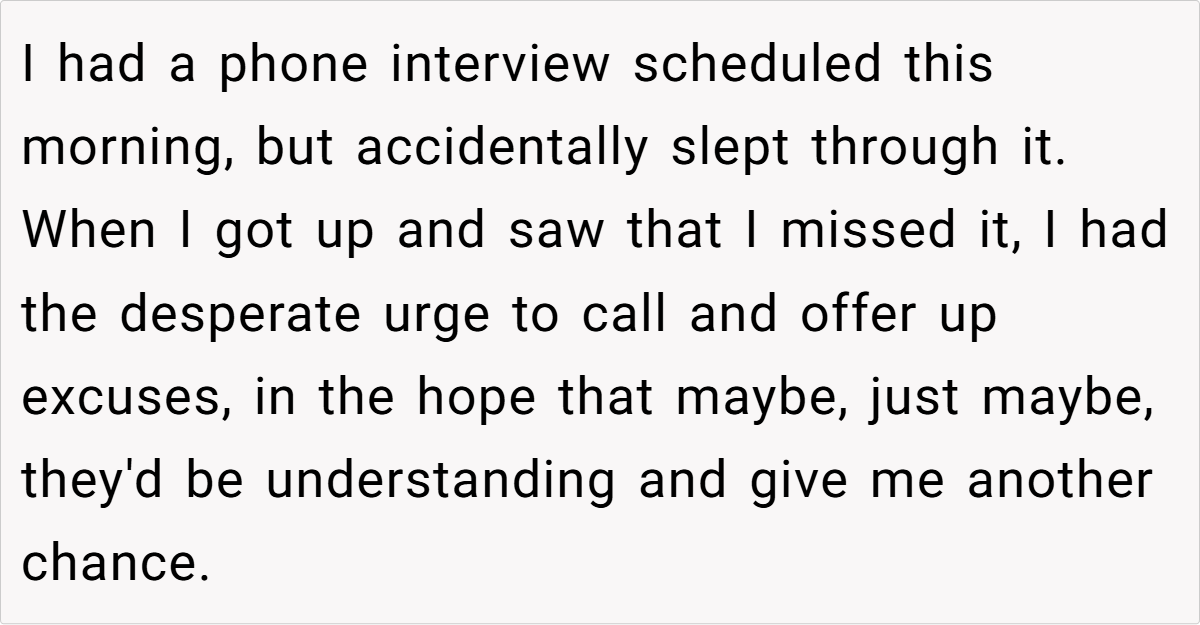

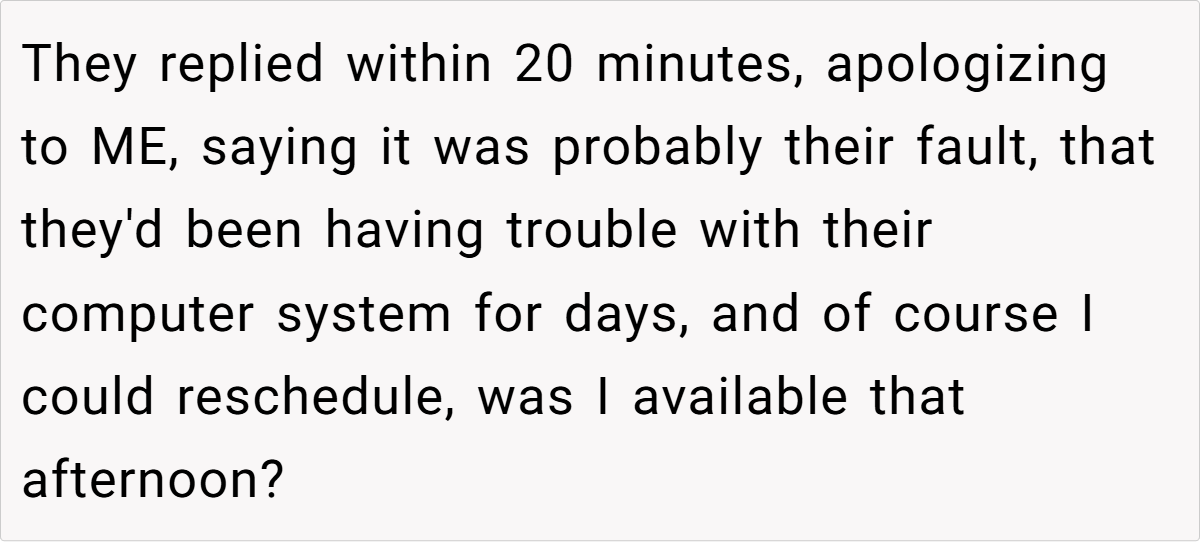

A quick, concise response can be a game-changer in high-pressure situations. As litigation attorney Dan Small advises in his “Powerful Witness Preparation” podcast, “Question, pause, answer, stop.” This mantra encapsulates the strategy of offering only the essential information and then letting the silence work its magic. When you resist the urge to over-explain, you maintain control and prevent the conversation from spiraling out of hand.
In job interviews and other critical moments, the instinct to fill silence with extra details can often backfire. Experts in career coaching echo this sentiment. Todd Zeldin of ACG Professionals once stated, “Unless you are asked specifically for this information, it is best to simply avoid discussing it at all,” reinforcing the idea that brevity can be more effective than an elaborate justification. This advice isn’t limited to corporate settings—it’s applicable to any situation where oversharing might create liabilities or simply muddy the waters.
Taking a broader view, this principle also touches on personal privacy and professionalism. Over time, many have learned that every extra word can sometimes lead to unintended consequences. In the realm of celebrity interviews, for instance, even renowned actor Tom Hanks has been noted for his measured, concise responses when probed about personal matters. His ability to keep answers short and leave further elaboration to follow-up questions has been widely praised by media critics and serves as a testament to the power of controlled speech.
Moreover, the social dynamics at play often reward those who listen more than they speak. When you keep your replies succinct, you avoid the trap of giving away too much, thereby maintaining an air of mystery and authority. This strategy isn’t just about self-protection—it also forces the conversation’s direction to be led by the other party. By doing so, you set clear boundaries on what is shared, ensuring that the discussion stays relevant and on track.
Another dimension to consider is the psychological impact of silence. In many communication theories, silence is not a void but a powerful tool that compels the questioner to elaborate further. This “pause” gives you time to think and underscores that you are not at a loss for words, but are instead choosing quality over quantity. It’s a subtle, yet effective, way to navigate tough conversations and maintain control over the narrative.
Lastly, this approach offers practical benefits in professional settings. By sticking to the essential details, you avoid the risk of contradicting yourself or revealing information that might later be used against you. Whether in legal testimony or job interviews, the strategy of minimalism in communication has repeatedly proven to be a winning tactic.
Here’s the comments of Reddit users:
The Reddit community has a wealth of candid and humorous takes on this principle. Many redditors agree that brevity not only saves you from unwanted follow-up questions but also leaves the other party with no room to misinterpret your words. As one redditor succinctly put it, “Never say more than you have to.”

Another user chimed in with a nod to the value of silence, humorously noting that if you keep it short, you’re never trapped into defending your words.

Yet another popular take emphasizes that by saying less, you let others’ assumptions do the work for you—a strategy that often works in your favor.


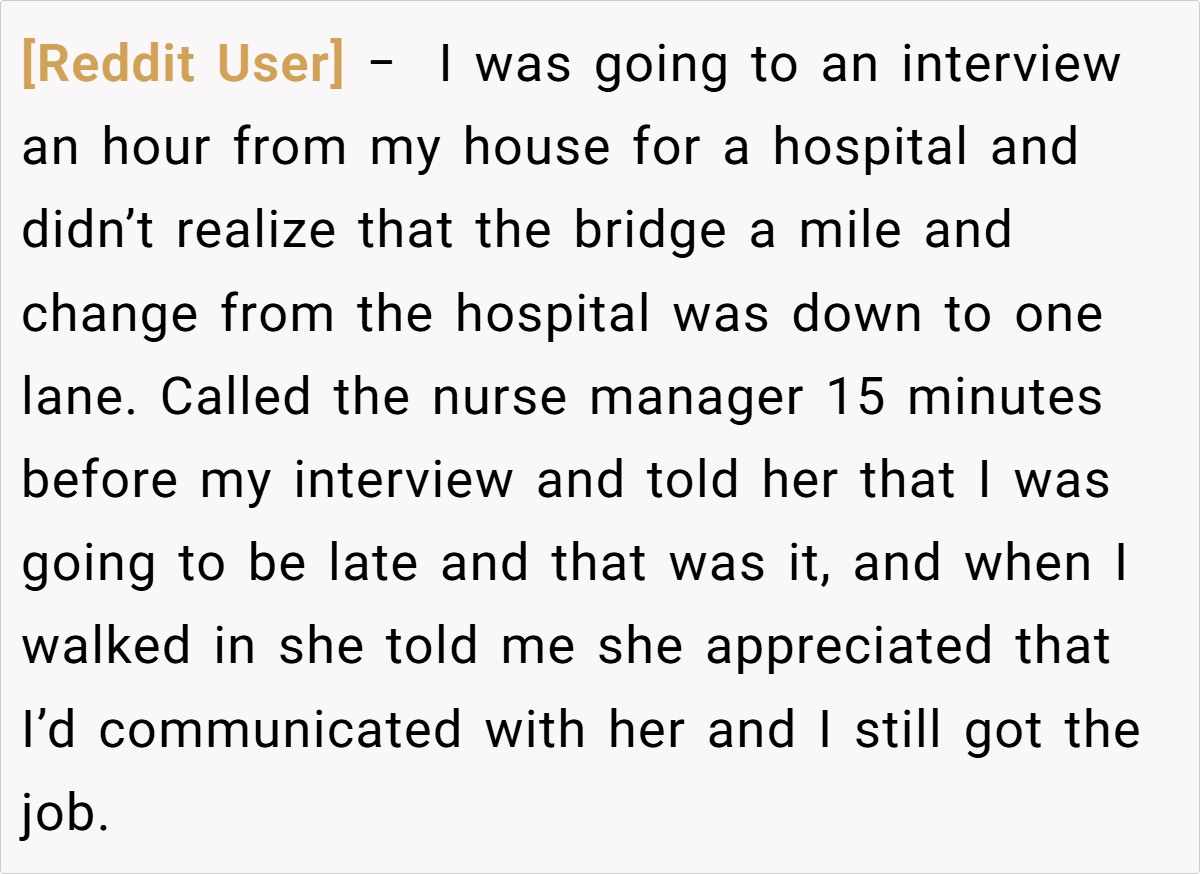

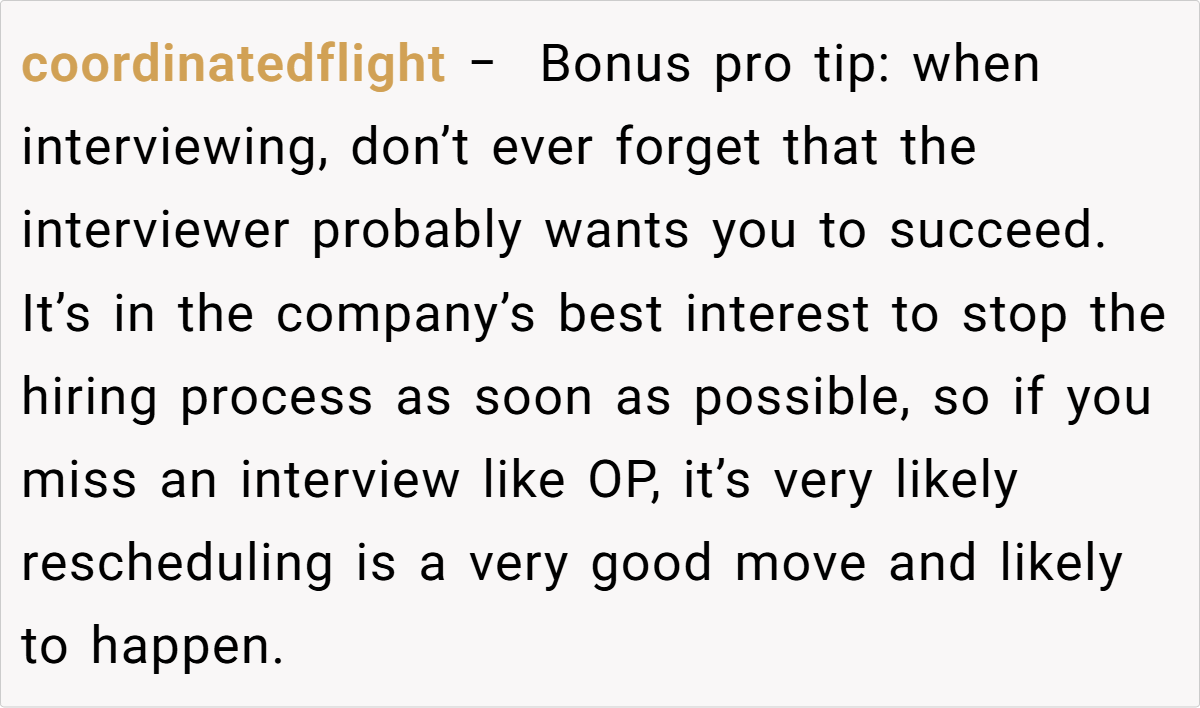
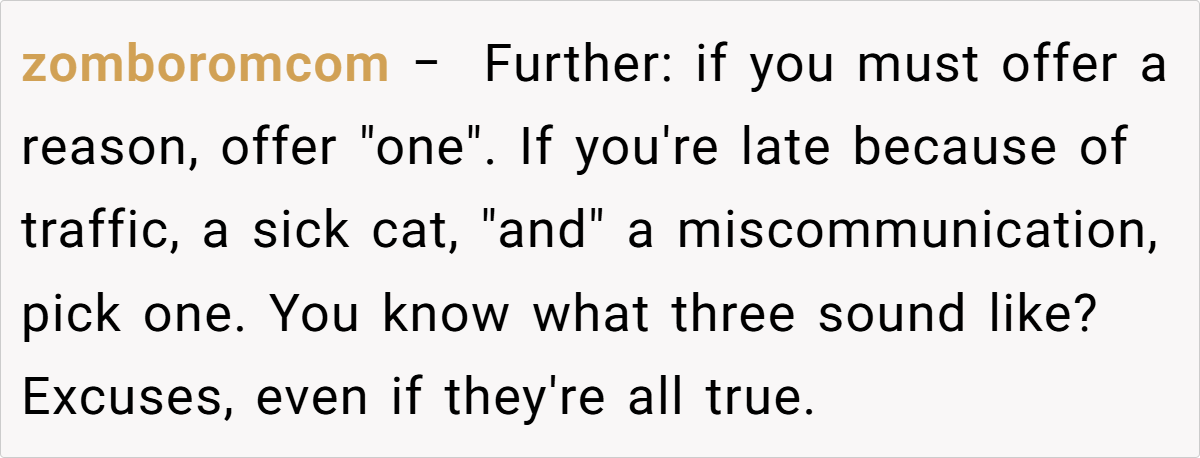
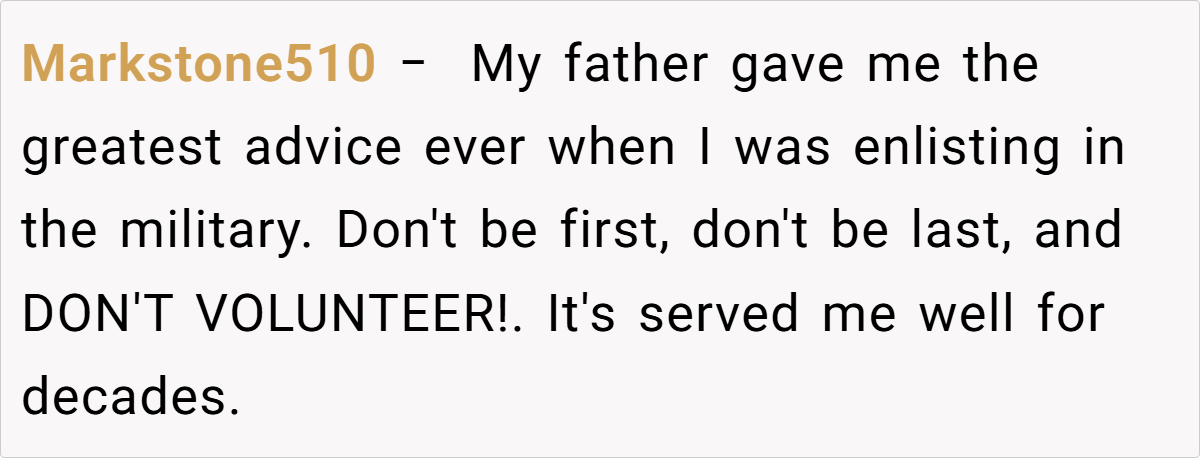
Finally, one redditor summed it up perfectly: “The fewer words you say, the less you can get in trouble for later.”

In conclusion, the art of not volunteering unnecessary information is a powerful tool in both personal and professional communication. It minimizes risk, maintains your privacy, and forces others to drive the conversation forward.
What do you think—would you ever risk over-explaining in a high-stakes situation, or have you learned to let silence speak for you? Share your thoughts and experiences in the comments below. What would you do if you found yourself in a similar situation?

